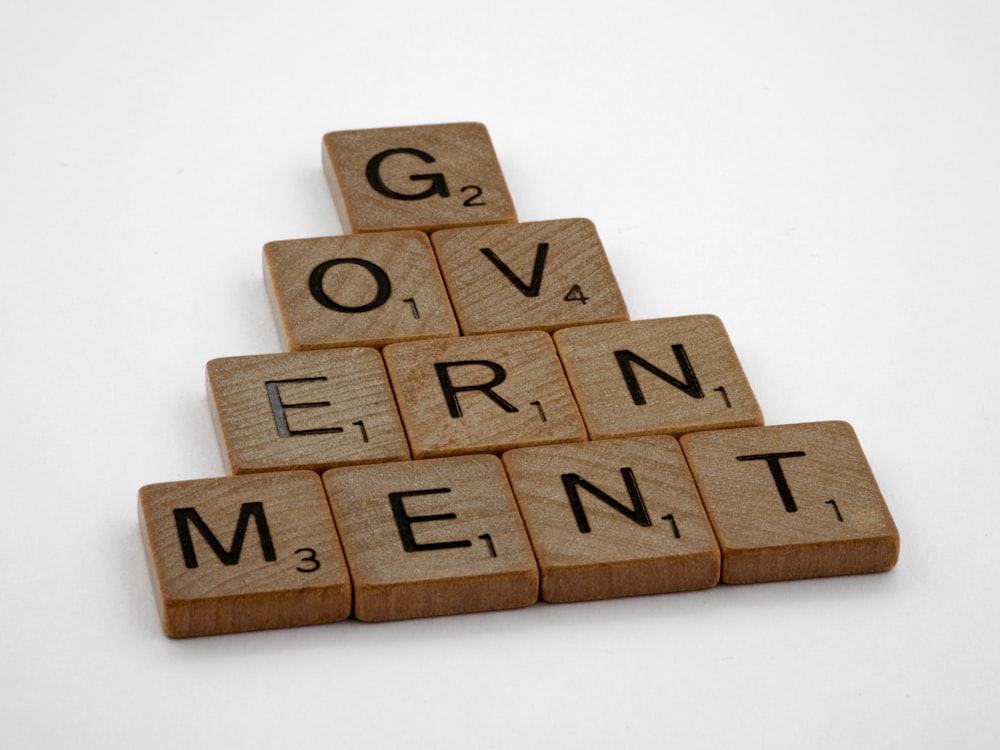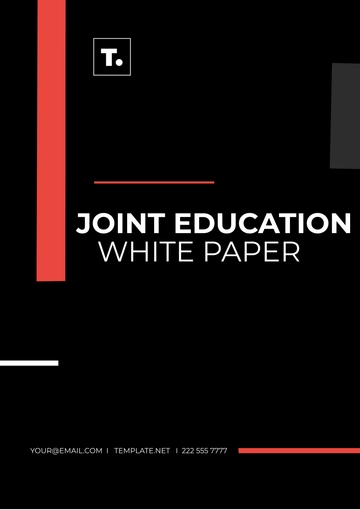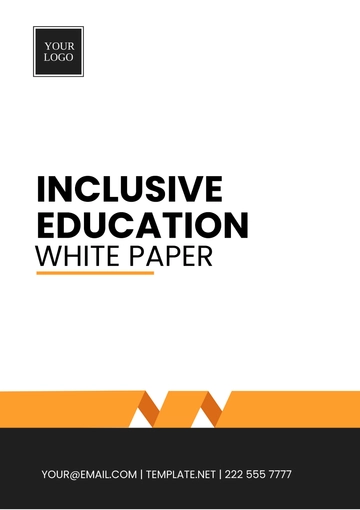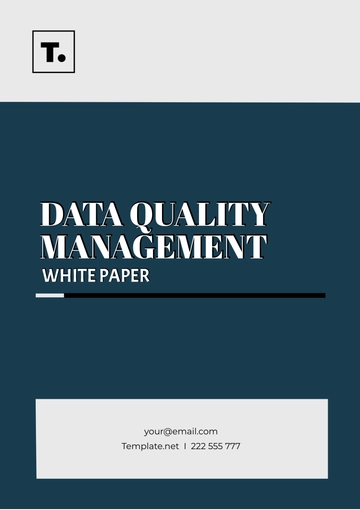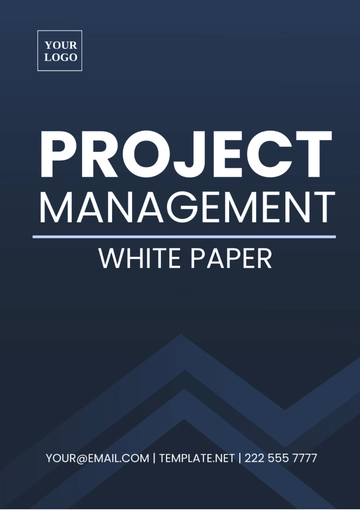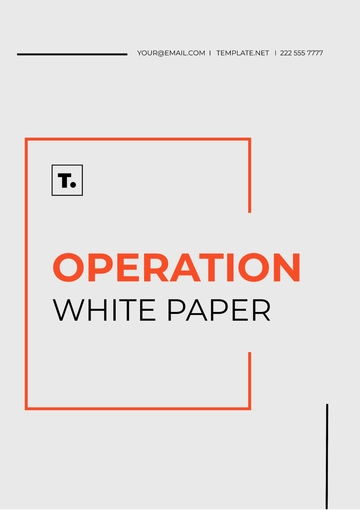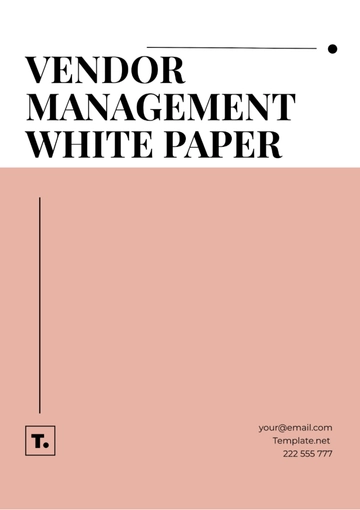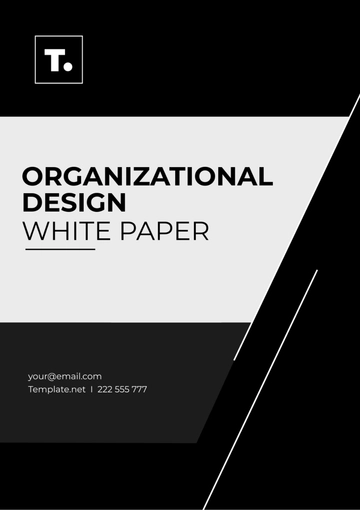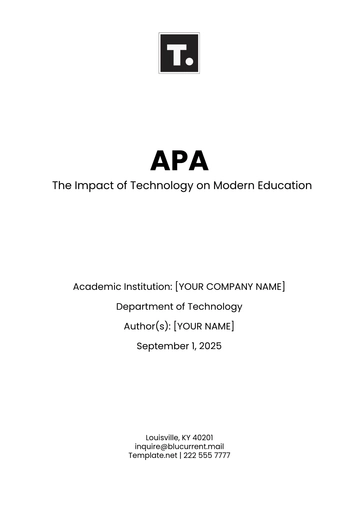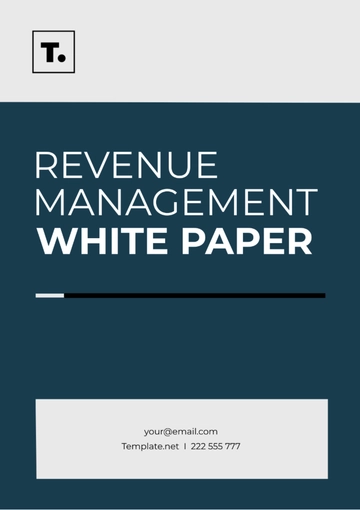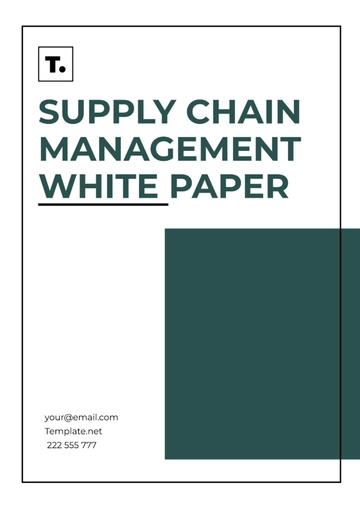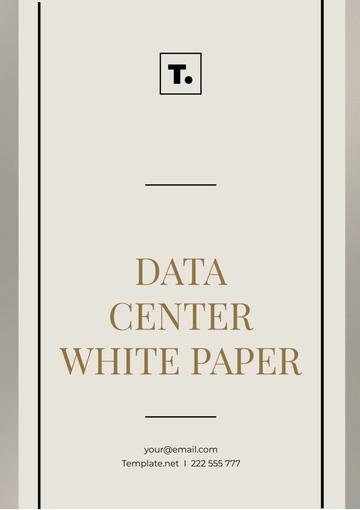Free Government White Paper
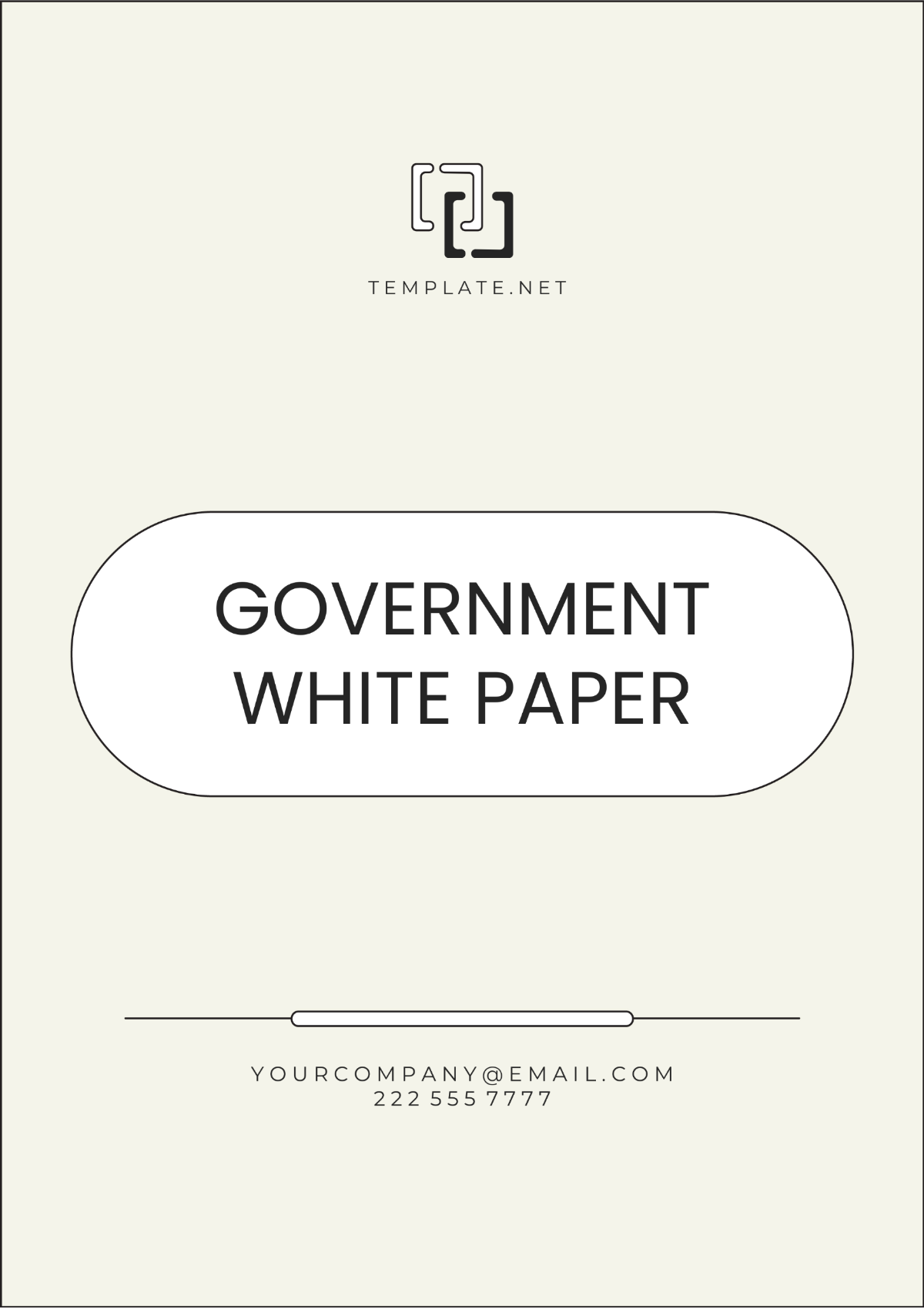
Written by: [YOUR NAME]
Email Address: [YOUR EMAIL]
I. Executive Summary
In the ever-evolving landscape of governance, effective policy formation stands as a cornerstone for shaping societies, economies, and the well-being of citizens. This White Paper offers a comprehensive guide to policymakers, delineating the essential steps and principles required for sound policy formulation. By adhering to these guidelines, policymakers can navigate the intricate terrain of policy development with clarity, ensuring that decisions are rooted in evidence, responsive to societal needs, and imbued with transparency and accountability.
II. Introduction
Policy formation embodies a multifaceted process, intricately weaving together data analysis, stakeholder engagement, and strategic decision-making. At its core, policy formation is driven by the imperative to address societal challenges, seize opportunities, and chart a course toward collective progress. This section outlines the foundational principles that underpin effective policy formation, setting the stage for informed decision-making and impactful governance.
Did you know? Since 1791, the Constitution has only been amended 17 times with 27 amendments being made.
III. Guiding Principles
A. Evidence-Based Decision Making
Policies must be anchored in robust evidence and rigorous analysis to foster effectiveness and efficiency.
Utilize empirical research, data analytics, and expert insights to inform policy deliberations and choices.
B. Stakeholder Engagement
Meaningful engagement with diverse stakeholders is indispensable for garnering insights, building consensus, and fostering ownership of policies.
Foster dialogue, consultation, and collaboration with affected communities, civil society organizations, industry stakeholders, and academia.
C. Transparency and Accountability
Transparency is the bedrock of democratic governance, necessitating openness, accessibility, and clarity in the policymaking process.
Establish mechanisms for public disclosure, stakeholder participation, and accountability mechanisms to uphold the public trust.
D. Flexibility and Adaptability
Policies should exhibit resilience and adaptability in the face of evolving circumstances, technological advancements, and emergent challenges.
Embrace a culture of innovation, experimentation, and continuous learning to refine policies and enhance their efficacy over time.
“Good policy makes good things easy to do, and bad things hard to do.” —Pearl Zhu
IV. Policy Formation Process
A. Issue Identification
Conduct thorough assessments of societal needs, emerging trends, and policy gaps to identify priority areas for intervention.
Employ foresight methodologies, trend analysis, and stakeholder consultations to discern pressing issues and opportunities.
B. Research and Analysis
Engage in comprehensive data collection, empirical research, and impact assessments to deepen understanding of policy challenges and potential solutions.
Harness interdisciplinary approaches, quantitative modeling, and qualitative insights to generate actionable intelligence for policymaking.
C. Stakeholder Consultation
Foster inclusive and participatory processes that solicit input, feedback, and perspectives from a diverse array of stakeholders.
Organize stakeholder forums, public hearings, and online consultations to facilitate dialogue and co-creation of policies.
D. Policy Development
Synthesize research findings, stakeholder input, and government priorities to formulate policy options and recommendations.
Evaluate the feasibility, efficacy, and ethical implications of policy proposals to ensure alignment with overarching policy objectives.
E. Impact Assessment
Conduct robust impact assessments to anticipate and evaluate the potential consequences of proposed policies on different stakeholder groups.
Consider social, economic, environmental, and equity dimensions to mitigate adverse effects and maximize positive outcomes.
F. Decision Making
Engage in evidence-informed decision-making processes that balance competing interests, values, and objectives.
Leverage decision support tools, policy briefings, and deliberative processes to facilitate informed choices by policymakers.
G. Implementation Planning
Develop detailed implementation plans that delineate roles, responsibilities, timelines, and resource allocations for policy execution.
Establish monitoring, evaluation, and feedback mechanisms to track progress, identify bottlenecks, and adapt strategies as needed.
“Life before law, people before policy.” —Abhijit Naskar
V. Evaluation and Review Mechanisms
A. Monitoring and Evaluation
Implement robust monitoring systems to track the implementation progress and outcomes of policies.
Conduct periodic evaluations to assess policy effectiveness, efficiency, and impact on target populations.
B. Feedback Loops
Establish mechanisms for soliciting feedback from stakeholders, citizens, and frontline implementers to identify challenges and opportunities for policy refinement.
Incorporate feedback into policy revisions and adjustments to enhance responsiveness and adaptability.
VI. Conclusion
In conclusion, effective policy formation embodies a symbiotic interplay of analytical rigor, stakeholder engagement, and strategic foresight. By adhering to the guidelines outlined in this Government White Paper, policymakers can navigate the complexities of governance with confidence, integrity, and a steadfast commitment to the public good.
VII. Appendices
Glossary of Terms: Definitions of key concepts and terminology used in policy formation.
Case Studies: Illustrative examples of successful policy formation processes and outcomes.
Additional Resources: References, reports, and online resources for further reading and exploration.
VIII. References
Smith, J. (2020). "Evidence-Based Policy Making: Principles and Practice." Cambridge University Press.
Jones, A. et al. (2019). "Stakeholder Engagement in Policy Development: A Practical Guide." World Bank Publications.
Government Accountability Office. (2021). "Transparency and Accountability in Government: Best Practices and Recommendations." GAO Report No. XXXX.
World Economic Forum. (2018). "The Future of Policy Making: Principles for Effective Policy Design in the Fourth Industrial Revolution." WEF Report.
United Nations Development Programme. (2017). "Policy Formation and Impact Assessment: A Guide for Policymakers." UNDP Publication.
- 100% Customizable, free editor
- Access 1 Million+ Templates, photo’s & graphics
- Download or share as a template
- Click and replace photos, graphics, text, backgrounds
- Resize, crop, AI write & more
- Access advanced editor
Looking for a professional solution to streamline your government white paper creation? Look no further than Template.net's Government White Paper Template. Our customizable and editable template offers a seamless experience, allowing you to effortlessly craft high-quality documents tailored to your needs. With our AI Editor Tool, you can enhance efficiency and precision.
